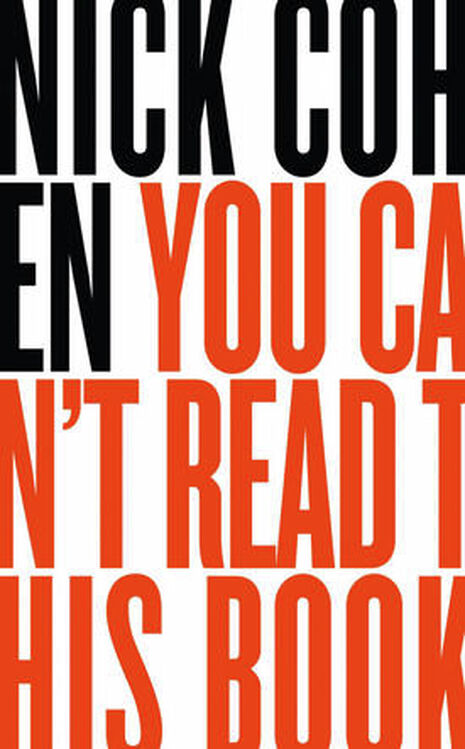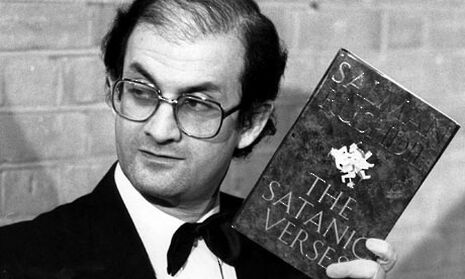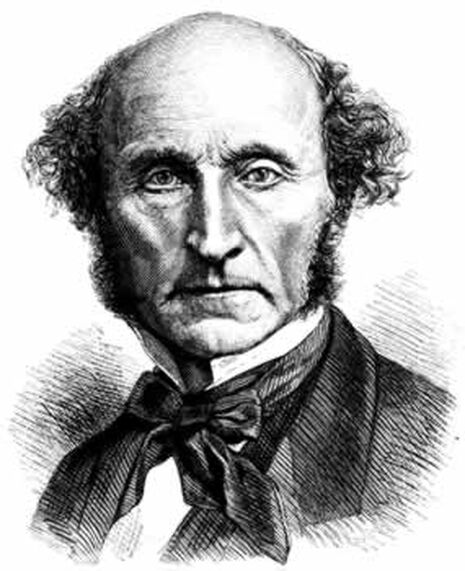Books: You Can’t Read this Book: Censorship in an Age of Freedom – Nick Cohen
Is it naive to believe that we live in a time of unparalleled free speech? Patrick Kane investigates one journalist’s take on the subject
I remember almost every moment of my Cambridge admissions interview – the awkward pauses, the stammering and the sheer terror. When answering a question on the importance of free speech, I cited the oft-referenced quote "I disapprove of what you say, but I will defend to the death your right to say it". My interviewer immediately stopped and asked me whether I really believed that.

Nick Cohen's You Can't Read This Book asks the same question, forcing us to examine our consciences and to take another look at free speech, both in historical terms, and in the world today. Cohen challenges the reader to reassess whether Western culture actually embraces free expression, or whether it shies away from the challenges that it inevitably brings. The journalist pulls no punches covering state intrusion, religion and the cost of delivering the truth to the masses: it's clearly an issue that the author feels strongly about, judging by the venom he pours upon numerous institutions that come under his careful examination, but his skilful manipulation of the written word makes for arguments that combine the theoretical and the anecdotal.

We learn of the experiences of a handful of characters - Salman Rushdie, Simon Singh, acclaimed artist Maqbool Husain and many more - involved in very different fights against censorship. One of the most interesting themes that runs through the book is that of self-censorship due to state intervention, legal costs, racism and even terrorism. As he discusses the response to the Satanic Verses and the Jyllands-Posten cartoons controversy, he attributes a substantial portion of blame to Western liberal academics who failed to freedom of speech and artistic expression, fearing that their support could be viewed as racist. Due to this lack of support, he proposes that academics shy away from controversial topics, just as journalists censor themselves for fear of libel writs.
While some of Cohen's arguments may not be brand new, his take on the banking crisis and the lack of whistleblower protection within the UK is particularly intriguing. From the turn of the millennium, he states, the financial press has failed to hold bankers to account in exposing the risky practices that were rife in the financial sector, due to British libel laws, while the lack of incentive for employees to speak out meant that we were not sufficiently prepared for the crash.

Cohen has a rare talent for being able to expand upon a point and provide substantial detail, before summarising his argument succinctly. This accessibility is the cornerstone of the book – quoting South Park and John Stuart Mill in the same breath, mixing human interest with political analysis, and above all, intriguing the reader is no mean feat. He touches upon certain points that could have done with greater analysis and explanation, namely that of super-injunctions and libel law. Cohen lambasts the former by referencing the Trafigura litigation, but only briefly touches upon the state of privacy law in the introduction, failing to cover the topic with the same cutting commentary in evidence throughout the rest of the book.
Nick Cohen has delivered an excellent commentary on the state of free expression today: even if you cannot agree with his conclusions, you have to admire the skill demonstrated in reaching them.
Fourth Estate, £12.99, paperback
 News / CUP announces funding scheme for under-represented academics19 December 2025
News / CUP announces funding scheme for under-represented academics19 December 2025 News / SU reluctantly registers controversial women’s soc18 December 2025
News / SU reluctantly registers controversial women’s soc18 December 2025 News / Cambridge welcomes UK rejoining the Erasmus scheme20 December 2025
News / Cambridge welcomes UK rejoining the Erasmus scheme20 December 2025 Features / Should I stay or should I go? Cambridge students and alumni reflect on how their memories stay with them15 December 2025
Features / Should I stay or should I go? Cambridge students and alumni reflect on how their memories stay with them15 December 2025 Film & TV / Timothée Chalamet and the era-fication of film marketing21 December 2025
Film & TV / Timothée Chalamet and the era-fication of film marketing21 December 2025









